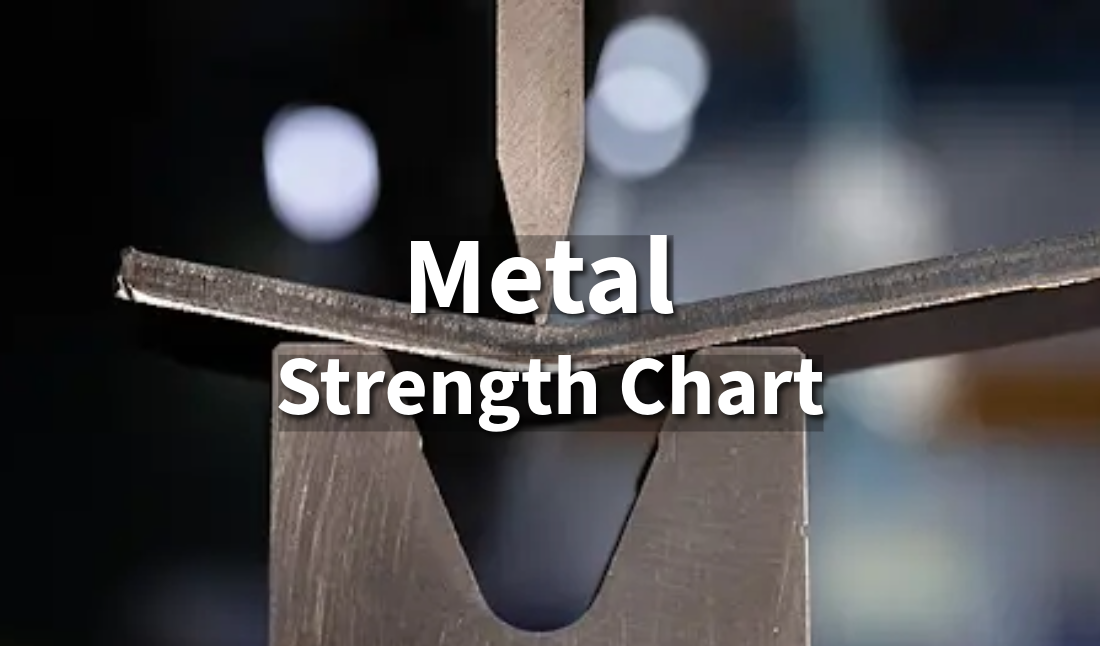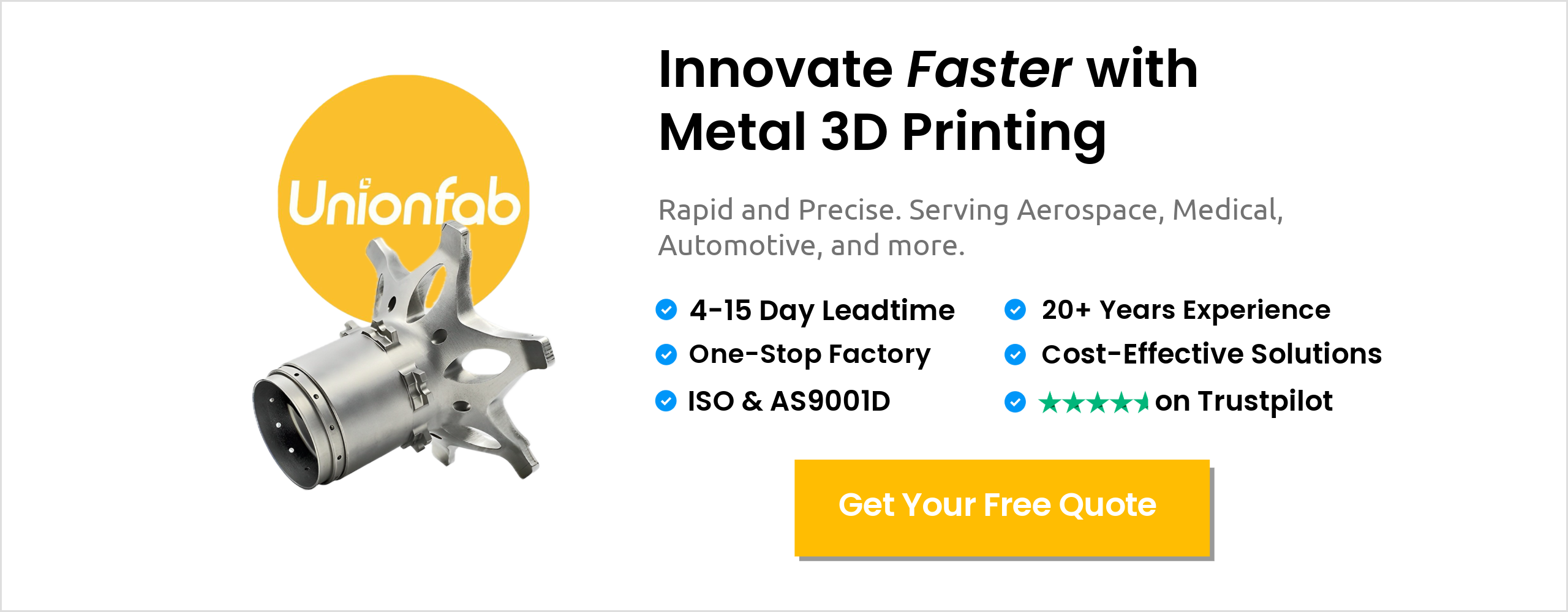Metal Strength Charts Explained for CNC and 3D Printing

Discover the ultimate metal strength chart for CNC machining and 3D printing. Compare tensile strength, hardness & applications of various metals.
Understanding Metal Strength in CNC and 3D Printing
Tensile Strength
Tensile strength is the ability of a material to withstand a pulling or stretching force. It is one of the most critical properties to consider when choosing a material, as it directly impacts the material’s ability to resist deformation under tension.
In CNC machining, high tensile strength metals like stainless steel (SS 304 or 316) are often used for parts that need to bear heavy loads, while in 3D printing, materials like titanium alloys and tool steels offer similar capabilities with the added benefit of complex geometries.
Yield Strength
Yield strength is the point at which a material begins to deform permanently. For both CNC and 3D printing, it is essential to choose a material that can withstand the forces it will encounter without yielding under operational stress (Check out our guide: Yield Strength of Steel: A Comprehensive Guide).
For high-performance applications, like aerospace or automotive parts, metals with high yield strength—such as Inconel or maraging steel—are commonly used.
Hardness
Hardness refers to a material’s resistance to surface deformation, scratching, or indentation. Metals like hardened tool steels or titanium alloys are known for their superior hardness, making them ideal for applications requiring wear resistance or the ability to handle abrasive environments.
Hardness can vary significantly in both CNC machining and 3D printing depending on the metal’s composition and heat treatment processes.
Fatigue Strength
Fatigue strength is the ability of a material to withstand cyclic loading without failing. This is particularly important for parts that will experience repeated stress, such as in engine components or aerospace applications.
Metals such as aluminum alloys (e.g., 7075) and titanium alloys are prized for their high fatigue strength, making them suitable for industries where parts are subject to continuous loading and unloading.
Impact Strength
Impact strength, or toughness, measures a material’s ability to resist sudden forces or shock loads. Materials that can absorb energy without fracturing are crucial in applications like automotive crash zones or industrial equipment.
In CNC machining, steel grades such as AISI 4140 are commonly used for their excellent impact resistance, while 3D printed metal parts made from materials like stainless steel or aluminum can also deliver high impact strength with optimized geometries.
Elongation
Elongation is the ability of a material to stretch before breaking. This property is essential for applications where flexibility or the ability to deform under stress is needed without failure.
For both CNC and 3D printing, metals with higher elongation, such as aluminum or certain stainless steels, can be more desirable when flexibility is required, such as in the creation of brackets or structural components.
Metal Strength Chart
Below is a general comparison of commonly used metals based on their strength properties:
Metal Type | Tensile Strength (MPa) | Yield Strength (MPa) | Hardness (HV) | Fatigue Strength (MPa) | Impact Strength (J) | Elongation (%) | Applications |
|---|---|---|---|---|---|---|---|
Strongest Metals | |||||||
1890 | 1930 | 500 | 600 | 40-50 | 3-5 | High-strength tooling and aerospace applications. | |
Inconel 718 | 1240 | 1035 | 400 | 400 | 30-40 | 15-20 | High-temperature applications, aerospace. |
1200 | 1150 | 380 | 500 | 25-35 | 10-15 | High-strength, corrosion-resistant parts for aerospace and medical implants. | |
Nickel Alloy 625 | 1030 | 760 | 270 | 380 | 40-50 | 30-40 | Corrosive environments, marine applications. |
Medium-Strength Metals | |||||||
1150 | 1250 | 350 | 450 | 50-60 | 15-20 | High-strength components for chemical processing and aerospace. | |
Titanium Grade 5 (Ti-6Al-4V) | 895 | 830 | 349 | 480 | 35-45 | 10-15 | Aerospace, medical devices, marine applications. |
Tool Steel D2 | 700 | 400 | 600 | 250 | 20-30 | 5-8 | High-wear applications like dies, cutting tools. |
400 | 600 | 271 | 150 | 20-30 | 40-50 | Corrosion-resistant parts for medical devices and food processing. | |
Aluminum 7075 | 572 | 503 | 150 | 140 | 25-35 | 10-15 | Aerospace, military, and high-strength applications. |
Stainless Steel 304 | 515 | 205 | 201 | 180 | 30-40 | 40-50 | General-purpose, corrosion-resistant parts. |
432 | 543 | 90 | 180 | 35-45 | 5-10 | Heat exchangers, electrical contacts, cooling systems. | |
Weakest Metals | |||||||
300 | 180 | 120 | 80 | 10-20 | 8 | General-purpose alloy for structural components. | |
Copper C11000 | 210 | 69 | 110 | 50 | 10-12 | 30-40 | Electrical conductivity, heat exchangers. |
180 | 300 | 120 | 100 | 10-15 | 7-10 | Lightweight components for aerospace and automotive industries. |
Note: These values are approximate and can vary based on specific processing methods and heat treatments.
Unionfab's Expertise in Metal 3D Printing and CNC Machining
At Unionfab, we specialize in both CNC machining and 3D printing, offering a wide range of metal materials to meet diverse project requirements. Our capabilities include:
Selective Laser Melting (SLM) – Utilizing state-of-the-art metal 3D printing technology, we produce high-precision, complex parts with materials such as Aluminum (AlSi10Mg), Titanium (TC4), Stainless Steel 316L, and Maraging Steel.
CNC Machining – Equipped with advanced multi-axis CNC machines, we work with a variety of metals to deliver precise, high-quality components.
Post-Processing & Surface Treatments – We offer a range of finishing techniques including anodizing, heat treatments, polishing, and coating to meet specific aesthetic and functional requirements.
Our commitment to quality is reflected in our impressive track record:
Over 95% on-time delivery rate.
Less than 0.5% quality complaint rate.
Delivery of over 2 million parts annually.
Get Expert Guidance from Unionfab
Get Expert Guidance from Unionfab
Selecting the right material is critical to the success of your CNC or 3D printing project. Unionfab offers high-quality materials, precise CNC machining, and advanced 3D printing solutions. Need expert advice on material selection? Get an instant quote or contact us today to get started!


